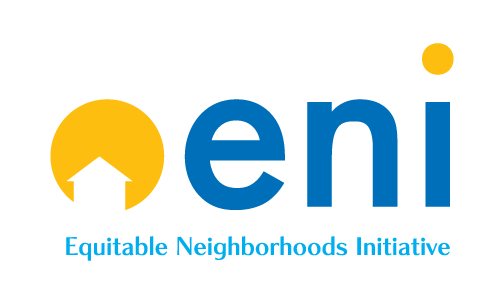February 26, 2025
For many Alabamians, heart health is a personal issue. Due to certain hereditary risks, lifestyle risks, and lack of access to healthcare, Alabama has one of the highest rates of heart disease mortality in the country. Alabamians also have higher than average risk of conditions like stroke and hypertension.
During February, which is National Heart Month, ENI would like to raise awareness about heart diseases, defects, and the ways that we can improve heart health in our communities. For many, heart health is an abstract concept—something to consider in passing. But for communities like the MOWA Band of Choctaw Indians and individuals like Cristin Brawner and Maggie Rivers, it’s a matter of life and death.
Taking to Heart Cardiovascular Health
For Maggie Rivers, ENI Community Liaison for the MOWA Band of Choctaw Indians, heart health is deeply personal. Heart disease and cardiovascular conditions have affected many of her loved ones—taking her father at 62, her mother at 64, and her brother at just 55. Even her husband, after undergoing quintuple bypass surgery, succumbed to a massive heart attack.
“Needless to say, heart health is very important to me,” Maggie shared. “I want to do whatever I can in my family and within my community to ensure that heart health is a priority.”
Cristin Brawner, ENI Regional Director and Project Coordinator, has also experienced just how important cardiovascular health–and healthcare–is for communities. Born with a congenital heart defect called Tetralogy of Fallot, Cristin’s family was aware from birth that she would need a life-saving surgery.
And, while she is thriving today, she knows all too well the challenges that come with living with heart disease–including the barriers to accessing specialty healthcare. In fact, Cristin’s family traveled from Pensacola, Florida, to the University of Alabama in Birmingham for her procedure.
“For many kids with heart defects, even if you live in a mid-sized city, you probably have to travel for care,” she said.
This challenge is compounded for families in rural areas, where transportation, financial costs, and mental stress add to an already difficult journey.
Bringing Heart Care to Rural Communities
The MOWA Band of Choctaw Indians, in partnership with HeartCorps, is working to address these healthcare barriers head-on, especially when it comes to preventable heart disease and cardiovascular deaths. HeartCorps, part of the Public Health AmeriCorps Program and the American Heart Association, is addressing health inequities in rural America by placing community health workers in underserved areas. The program provides hands-on public health training while improving access to life-saving resources.
“HeartCorps is designed to support those living in rural areas, helping them develop a new generation of public health leaders,” Maggie shared.
Thanks to the partnership, the MOWA community will have two dedicated community health workers, who are launching a home visit program to check blood pressure and train residents in CPR.
“We have 116 families on our reservations, many of whom are elderly or disabled,” Maggie explained. “Ensuring that they remain healthy is a priority for our tribe.”
Maggie experienced the importance of these services first hand, when her husband suffered his second heart attack. Unfortunately, there was no one present who was trained in CPR. Now, she is determined to ensure no other family feels that helplessness. With the help of a trained EMT, the HeartCorps program will offer CPR training to any household that wishes to participate.
Small Behaviors, Big Impact
Both Cristin and Maggie emphasize the importance of recognizing warning signs and making small lifestyle changes to protect heart health. Cristin, who must monitor her heart closely due to her condition, has learned to listen to her body.
“I have to really pay attention to my heart and not overexert myself,” she said. “Our heart is so affected by what we eat, our movement, and our stress levels. Taking care of it is essential.”
Maggie also believes that she must empower her community to take control of their heart health. By advocating for education, screenings, and emergency preparedness, she is making a lasting impact.
“Heart health is not just about one person—it’s about entire families and communities,” Maggie said.
As we observe National Heart Month, we hope you can take a moment to protect your heart health. Whether it’s scheduling a heart screening, learning CPR, or simply making healthier choices, every step toward heart health can save a life.

